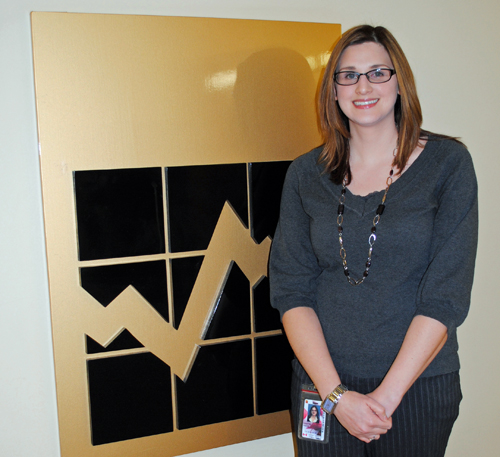
For Kristyn Frank, the path to a career at Statistics Canada started with a project in her last year of high school in Welland, Ont., that was, in her words, “a terribly constructed survey.”
While taking a course about Canadian families, she decided to do a project on how people rated their relationships with their siblings, and then analyze the results by different age groups.
“It wasn’t overly scientific, but I enjoyed the project,” says Frank. “So I decided to study sociology and anthropology in university, but without any specific career goals. At Wilfrid Laurier, I enjoyed researching for essays and presentations, so I wanted to continue in that line of work.”
Frank now works as a research sociologist for the social analysis division of Statistics Canada (StatCan) in Ottawa. Her resumé includes two stops at Guelph, first for her MA and then for post-doctoral work.
Frank chose Guelph for her MA in sociology because the University also offers a number of graduate-level anthropology courses. While here, she helped organize the sociology and anthropology graduate student conference.
“I learned what to expect when presenting at academic conferences while also getting a ‘behind the scenes’ perspective about organizing a conference.”
She completed her PhD in sociology at the University of Waterloo, working at that school’s Research Data Centre (RDC) as a data analyst. At UW, she and David Walters, who is a sociology professor at Guelph, began talking by email.
For her post-doctoral studies funded by the Social Sciences and Humanities Research Council of Canada, Frank wanted to work with someone experienced with advanced statistical methods and thought of Walters.
They worked on several research projects at Guelph, including the role of immigrant social networks on employment, and Frank was the lead author on a study published in the Canadian Journal of Higher Education, called “Exploring the Alignment Between Post-Secondary Education Programs and Earnings: An Examination of 2005 Ontario Graduates.” The study found that applied and professional university graduates in general found jobs faster and earned more than other students.
“Kristyn had a strong understanding of the concepts and strategies needed to analyze a massive amount of data at Guelph’s RDC,” says Walters. “It was a very complicated and demanding project that required a great deal of research.”
After Guelph, Frank briefly worked as a research analyst at the Higher Education Quality Council of Ontario (HEQCO), which analyzes quality and accountability issues in post-secondary education.
While at the HEQCO, she was offered a job at StatCan as a research sociologist, beginning in May 2011.
“Our main research is on labour market outcomes, immigration, education, aging and retirement,” she says. “So my time is mostly spent on reviewing literature, conducting data analysis, writing and presenting papers.
“Another component is trying to improve StatCan data. I’m currently completing a project where we ‘harmonize’ census variables across several census years to make the data more historically comparable.”
Frank believes her studies helped her reach her career goals.
“Guelph definitely put me on the path to working at StatCan. For example, I learned how to visualize how statistical components related to one another, and the methodology courses helped develop my research skills.”
In her free time, Frank and her partner, Dave, are working on their new house. They also spend time playing with their two dogs, Layla and George, and attending concerts.
She enjoys working in a field that is stimulating.
“I enjoy the different perspectives that studying sociology and conducting social research provide. It provides a viewpoint that often diverges from mainstream perspectives. Sociology has definitely challenged me to look at many issues differently and allowed me to address some of my own questions about the social world.”